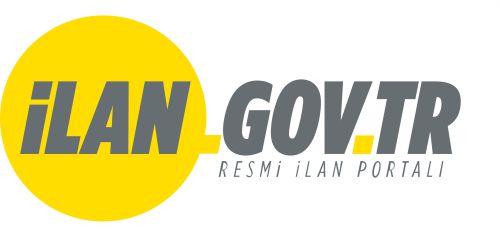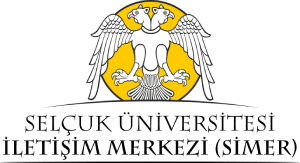Bölüm Adı: Yönetim ve Organizasyon
Program Adı: Lojistik Programı
Bölüm Başkanı: Dr. Öğr. Üyesi Ali GANİYUSUFOĞLU
Erasmus Koordinatörü: Öğr. Gör. Taner ÖZGÜL
Farabi Koordinatörü: Öğr.Gör.Hüseyin Fatih ŞEN
AKTS Koordinatörü: Dr. Öğr. Üyesi Ali GANİYUSUFOĞLU
Bologna Koordinatörü: Dr. Öğr. Üyesi Ali GANİYUSUFOĞLU
Amaç: Programın amacı lojistik konusunda Türkiyenin değişen ve gelişen koşullarına uygun, mezun olduğu andan itibaren sektörün her kolunda yer alabilecek kalifiye eleman yetiştirmektir. Sektörün ihtiyaçları yönünde hazırlanmış olan dersler, yabancı dil ve bilgisayar laboratuarları ile desteklenmiş, modern sınıflarda yapılmaktadır. Ayrıca ders programında tüm taşıma türleri (karayolu, denizyolu, demiryolu, havayolu ve iç suyolu taşımacılığı) ile ilgili sektöre yönelik dersler bulunmaktadır.
İşletmelerin günümüz rekabetçi iş ortamında rakiplerinden bir adım daha önde olabilmesi için, iş süreçlerinde gecikme yaşanmaması gerekmektedir. Ürünlerin ilk hammaddesinden son ürün olarak tüketiciye ulaşana kadar olan serüveninde etkili lojistiğe ihtiyaç duyulmaktadır. Bu ihtiyaç beraberinde uluslararası ticaretin temel niteliği olan lojistik sektöründe, taşımacılık yönetimi, tedarik zinciri yönetimi, depolama teknikleri, işletme yönetimi, karar verme yöntemleri, temel bilişim teknolojisi, dış ticaret, gümrük, üretim lojistiği ile ilgili diğer ulusal ve uluslar arası yasal düzenlemelere hakim ara elemanların yetiştirilmesi önemli kılmaktadır. Uluslararası ticaretin ana öğesi durumunda olan lojistik sektöründe, işletme, matematiksel karar verme yöntemleri, temel ve programlama düzeyinde bilişim teknolojisi, dış ticaret, gümrük, taşımacılık ile ilgili diğer ulusal ve uluslar arası yasal düzenlemelere hakim ara elemanların yetiştirilmesi oldukça önemlidir.
Endüstrinin nitelikli ara eleman ihtiyacını karşılamak üzere kurulan Lojistik Programı, çok geniş bir çalışma sahasına sahiptir. Teknolojik gelişmeler, endüstriyel sektörlerde de üretim yöntemlerinin, idari ve mali yönetim anlayışının değişimine sebep olmuştur. Özellikle bilişim teknolojisindeki gelişmeler, işletmelerde birimler arası koordinasyonun etkin ve hızlı bir şekilde sağlanmasına imkan vermiştir. Ancak bu yeni teknolojinin endüstriye uygulanmasında, teknik ve sosyal birçok niteliğe sahip eleman ihtiyacı ortaya çıkmıştır. Lojistisyenler, üretim, enerji ya da hizmet sektöründe, işçilerle mühendisler ve yöneticiler arasında ara eleman olarak her safhada çok önemli yerler almaktadırlar. Üretim için (malzeme+üretim imkanları+insan) zamanında bir araya getirilmesi, üretimi yapılan ürünlerin son kullanıcıya ulaştırılması faaliyetleri içerisinde, bu program mezunlarının istihdamında çok geniş imkanlar vardır. Çağın gerektirdiği bilgi ve beceriyi kazandırmak üzere hazırlanmış olan dersler, en son teknoloji ve teknikler kullanılarak, hem teorik ve hem de uygulamalı olarak verilmektedir.
Misyon: Lojistik ile ilgili konularda yeterli alt yapıya sahip, alanında edindiği temel düzeydeki bilgi ve becerileri kullanarak verileri yorumlayabilen ve değerlendirebilen, sorunları tanımlayabilen, mesleki plan ve projeleri gerçekleştiren ve çözüm önerileri geliştirebilen, lojistik ile ilgili uygulamalar için gerekli teknikleri, araçları ve bilişim teknolojilerini belirleyerek etkin bir şekilde kullanabilen, uygulamalarda karşılaştığı öngörülmeyen problemlere çözüm üretebilen, çalışma guruplarında sorumluluk alabilen veya bireysel çalışabilme becerisine sahip, etkili iletişim kurabilen ve alanındaki yenilikleri takip edebilecek düzeyde yabancı dil bilgisine sahip, tarihi ve toplumsal değerlere saygılı, sosyal sorumluluk sahibi, evrensel, toplumsal ve mesleki etik bilinci olan, yaşam boyu öğrenmenin gerekliliği bilinci ile bilim ve teknolojideki gelişmeleri izleyen ve kendini sürekli yenileyen, iş güvenliği, sanayi ve hizmet sektöründe yapılan işleri yerinde takip ederek mesleğine yönelik uygulama becerisine sahip lojistikçiler yetiştirmektir.
Vizyon: Öğrencilerimizin teorik temel bilgileri özümsemiş, kendi kendine öğrenme ve bilimsel araştırma yeteneğine sahip, analitik düşünebilen, gözlem yapabilen, neden-sonuç ilişkisini sorgulayarak yaratıcı çözümler üretebilen, kendi alanı ilgili konularda sorumluluk bilinciyle kararlar alabilen, güvenilir, iletişim yetenekleri gelişmiş, ekip çalışması yapabilen, insanlarla diyaloga açık, empati yeteneğine sahip mezunlar olarak yetişmeleridir.
Program Dili: Türkçe
Kabul ve Kayıt Koşulları: Adayların Lise ve dengi okul diplomasına sahip olması ve Üniversite Öğrenci Seçme Sınavından yeterli puanı almış olması ve/veya ÖSYM tarafından belirlenen süreçleri tamamlamış olması gerekmektedir.
Önceki Öğrenmenin Tanınması: Yükseköğretim Kurumlarında Ön Lisans ve Lisans Düzeyindeki Programlar Arasında Geçiş, Çift Anadal, Yandal ile Kurumlararası Kredi Transferi Yapılması Esaslarına İlişkin Yönetmelik” hükümleri uygulanır.
Mezuniyet Şartları: Programda öngörülen mezuniyeti için gerekli olan zorunlu ve seçmeli dersleri almış ve başarmış olması, stajı başarı ile tamamlaması (toplam 120 AKTS) ve mezuniyet ağırlıklı not ortalamasının 4.00 üzerinden en az 2.00 olması gerekmektedir.
Ölçme ve Değerlendirme Esasları: Vize (ara sınav), ödev, alıştırma, proje, uygulama ve final (genel sınav) sınavı gibi farklı değerlendirme yöntemleri uygulanmaktadır. Değerlendirme yöntemleri arasında klasik sınav, çoktan seçmeli sınav, ev ödevi, performans değerlendirme ve ürün değerlendirme yer alabilir.
İstihdam Olanakları: Lojistik Programı mezunları özel sektör ve kamu sektöründe faaliyet gösteren tüm işletmelerin planlama ve ürün tasarımı, pazarlama, üretim planlama, malzeme yönetimi, envanter yönetimi, depolama, dağıtım, taşımacılık, sigorta, gümrük hizmetleri, satın alma, müşteri hizmetleri, dış ticaret ve satış departmanlarında ayrıca lojistik işletmelerinde çalışabilme olanağına sahiptirler. Lojistik Programı mezunları aşağıdaki kurum ve kuruluşlarda çalışabilirler Üretim, Hizmet ve Satış Şirketlerinin Lojistik Birimleri, Lojistik Şirketler (3. Parti Lojistik Hizmet Sağlayıcılar), Taşıma İşleri Organizatörleri (Freight Forwarders), Kara, Hava, Deniz, Demiryolu ve İntermodal Taşımacılık Şirketleri, Sigorta, Finansman, Denetim ve Dış Ticaret Şirketlerinin Lojistik Birimleri, Lojistik Danışmanlık ve Eğitim Kuruluşları, Üniversite ve Araştırma Kurumlarının Lojistik Bölümleri, Devlet Planlama Teşkilatı, Ulaştırma Bakanlığı vb.. Devlet Kurum ve Kuruluşlarının ilgili Birimleri.
Üst Derece Programlara Geçiş: İki yıllık ön lisans eğitiminin sağladığı iş imkanlarının ötesinde akademik hayatı sürdürmeyi arzu edenler ise Dikey Geçiş Sınavında yeterli puanı aldıkları takdirde, kamu ve vakıf üniversitelerinin 4 yıllık işletme, Havacılık işletmeciliği, lojistik yönetimi, uluslararası ticaret bölümlerinde okuyabilirler. Dikey Geçiş Sınavını kazanan öğrenciler aşağıda belirtilen alanlarda öğrenimlerine devam ederek lisans diploması almaktadır. Havacılık İşletmeciliği, İşletme, Lojistik Yönetimi, Sivil Hava Ulaştırma İşletmeciliği, Ulaştırma ve Lojistik, Uluslararası Finans, Uluslararası Finans ve Bankacılık, Uluslar arası, Lojistik, Uluslararası Lojistik ve Taşımacılık, Uluslararası Lojistik Yönetimi, Uluslararası Ticaret, Uluslararası Ticaret ve Lojistik, Uluslararası Ticaret ve Lojistik Yönetimi lisans programlarına dikey geçiş yapabilirler.
Department Name: Management and Organization
Unit Name Logistics Programme
Head of Department: Asist. Prof. Dr. Ali GANİYUSUFOĞLU
Erasmus Coordinator: Lecturer Dr. Taner ÖZGÜL
Farabi Coordinator: Lecturer.Hüseyin Fatih ŞEN
AKTS Coordinator: Asist. Prof. Dr. Ali GANİYUSUFOĞLU
Bologna Coordinator: Asist. Prof. Dr. Ali GANİYUSUFOĞLU
Objective: The aim of the program is to train qualified personnel who can take part in every branch of the sector from the moment of graduation in accordance with the changing and developing conditions of Turkey in logistics. The courses prepared in line with the needs of the sector are held in modern classrooms supported by foreign language and computer laboratories. In addition, there are courses for the sector related to all types of transportation (road, maritime, railway, airway and inland waterway transportation) in the curriculum.
In order for businesses to be one step ahead of their competitors in today's competitive business environment, there should be no delays in business processes. Effective logistics is needed in the journey of products from the first raw material to the consumer as the final product. This need makes it important to train intermediate staff who are familiar with transportation management, supply chain management, storage techniques, business management, decision-making methods, basic information technology, foreign trade, customs, production logistics and other national and international legal regulations in the logistics sector, which is the basic nature of international trade. In the logistics sector, which is the main element of international trade, it is very important to train intermediate staff who have knowledge of business administration, mathematical decision-making methods, basic and programming level information technology, foreign trade, customs, transportation and other national and international legal regulations.
The Logistics Program, which was established to meet the qualified intermediate staff needs of the industry, has a very wide working area. Technological developments have caused changes in production methods, administrative and financial management in industrial sectors. In particular, developments in information technology have enabled the coordination between units in enterprises to be provided effectively and quickly. However, in the application of this new technology to the industry, the need for personnel with many technical and social qualifications has emerged. Logisticians take very important places at every stage as intermediate staff between workers, engineers and managers in the production, energy or service sector. There are very wide opportunities for the employment of graduates of this program in the activities of bringing together (material + production facilities + human) for production in a timely manner and delivering the products produced to the end user. The courses, which are prepared to provide the knowledge and skills required by the age, are given both theoretically and practically, using the latest technology and techniques.
Mission: To have sufficient background in logistics related subjects, to be able to interpret and evaluate data using the basic knowledge and skills acquired in the field, to be able to identify problems, to realize professional plans and projects and to develop solutions, to be able to use effectively by determining the necessary techniques, tools and information technologies for logistics related applications, to be able to produce solutions to unforeseen problems encountered in applications, to be able to take responsibility in working groups or to work individually, To train logisticians who can communicate effectively and have foreign language knowledge at a level that can follow the innovations in the field, who are respectful to historical and social values, who have social responsibility, who are aware of universal, social and professional ethics, who follow the developments in science and technology with the awareness of the necessity of lifelong learning and constantly renew themselves, who have the ability to apply their profession by following the work done in the occupational safety, industry and service sector.
Vision: Our students are trained as graduates who have assimilated the theoretical basic knowledge, have the ability of self-learning and scientific research, can think analytically, can observe, can produce creative solutions by questioning the cause-effect relationship, can make decisions with a sense of responsibility in matters related to their field, are reliable, have developed communication skills, can work in a team, are open to dialogue with people, and have the ability to empathize.
Program Language: Turkish
Admission and Registration Requirements: Candidates must have a high school diploma or equivalent and must have received sufficient points from the University Student Selection Examination and/or have completed the processes determined by ÖSYM.
Recognition of Prior Learning: The provisions of the "Regulation on the Principles of Transition, Double Major, Minor and Inter-institutional Credit Transfer between Associate Degree and Undergraduate Programs in Higher Education Institutions" are applied.
Graduation Requirements: The compulsory and elective courses required for graduation in the program must be taken and passed, the internship must be successfully completed (a total of 120 ECTS) and the graduation weighted grade point average must be at least 2.00 out of 4.00.
Measurement and Evaluation Principles: Different assessment methods such as midterm exam, homework, exercise, project, application and final (general exam) exam are applied. Assessment methods may include classical exam, multiple choice exam, homework, performance evaluation and product evaluation.
Employment Opportunities: Graduates of the Logistics Program have the opportunity to work in planning and product design, marketing, production planning, materials management, inventory management, warehousing, distribution, transportation, insurance, customs services, purchasing, customer service, foreign trade and sales departments of all enterprises operating in the private and public sectors, as well as logistics enterprises. Graduates of the Logistics Program can work in the following institutions and organizations Logistics Units of Production, Service and Sales Companies, Logistics Companies (3rd Party Logistics Service Providers), Freight Forwarders, Land, Air, Sea, Railway and Intermodal Transportation Companies, Logistics Units of Insurance, Financing, Auditing and Foreign Trade Companies, Logistics Consulting and Training Organizations, Logistics Departments of Universities and Research Institutions, State Planning Organization, Ministry of Transport, etc. Related Units of State Institutions and Organizations.
Transition to Higher Degree Programs: Those who wish to continue their academic life beyond the job opportunities provided by the two-year associate degree education can study in 4-year business administration, aviation management, logistics management, international trade departments of public and foundation universities if they get enough points in the Vertical Transfer Exam. Students who pass the Vertical Transfer Examination continue their education in the following fields and receive a bachelor's degree. Aviation Management, Business Administration, Logistics Management, Civil Air Transportation Management, Transportation and Logistics, International Finance, International Finance and Banking, International, Logistics, International Logistics and Transportation, International Logistics Management, International Trade, International Trade and Logistics, International Trade and Logistics Management undergraduate programs.












.png)


